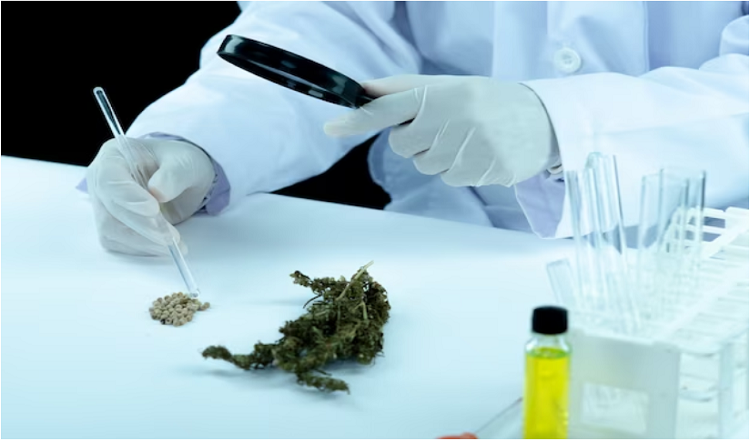Looking for an alternative medical procedure to treat your illness? You might want to think about marijuana. Yes, the plant that was once stigmatized is now gaining popularity in the medical community due to its possible therapeutic uses. In fact, as more and more people look for symptom treatment, medical cannabis products are gaining popularity in the US.
But it’s crucial to comprehend the many products available and their uses before you delve into the realm of medicinal cannabis. There are numerous ways to take medicinal cannabis products, including flower/buds, sweets, tinctures, and topicals. Finding the ideal product for your needs might be overwhelming because each variety has its own distinct advantages and potential disadvantages. That’s where we come in; in this post, we’ll explain the many medical cannabis product varieties and their applications so you can make an educated choice. Let’s explore the world of medical cannabis together as you sit back and unwind.
Flower/Buds
The most popular type of cannabis is flower or buds, which are often smoked or vaporized. Patients who use medical cannabis frequently utilize the flower or buds to alleviate ailments like anxiety, nausea, and chronic pain. Cannabis flower and buds from various strains contain diverse amounts of THC and CBD, which can have various physiological effects. For instance, strains with high CBD concentrations may be better at treating seizures, whereas strains with high THC concentrations may be better at treating pain. Patients may also decide to take cannabis-infused edibles, which are food items, such as flower or buds. Before selecting a product that will meet their demands, patients should be aware of the effects of various strains and consumption styles.
Concentrates
Cannabis concentrates, which are derived from the plant using a variety of techniques, are a stronger form of the drug. Concentrates have higher THC concentrations than flower or buds and are frequently used for its quick-acting effects. There are several concentrates, such as hash, wax, shatter, and oil, each with a distinct strength level and medical use. For instance, oil is frequently used for its anti-inflammatory effects, whereas hash is frequently used to treat pain and muscular spasms. Patients can use techniques like dabbing or vaping to consume concentrates, which allows for a more concentrated and quick effect. Before utilizing concentrates, it’s crucial for patients to understand the risks and adverse effects and start with small dosages.
Edibles
Food items that have been infused with cannabis extract are known as edibles. They provide a discrete and practical manner of cannabis consumption and are a well-liked alternative to smoking or vaping. Edibles provide a variety of advantages for medicinal cannabis users, including longer-lasting effects, accurate dosage, and a smoke-free choice. Brownies, gummies, and drinks are some examples of different edibles, each with an own strength level and medical use. jAdditionally, edibles’ effects can differ according on the patient’s health, so it’s crucial to speak with a healthcare provider before consuming them.
Tinctures
Tinctures are a convenient and user-friendly way to consume cannabis extract in a liquid form. They provide a discrete way to consume medication because they are often taken sublingually, or under the tongue. For patients using medical cannabis, tinctures have a number of advantages, such as accurate dosing, a smoke-free choice, and quick-acting effects. There are various tincture varieties, including alcohol- and oil-based ones, each with a different strength level and set of therapeutic applications. As the effects of tinctures can change based on the patient’s medical state, proper dosage is crucial. It is advised to begin with a modest dose and raise it gradually until the desired effect is obtained. It’s crucial to speak with a medical expert before taking tinctures.
The Uses of Strains
Cannabis comes in a variety of strains, each of which has a unique impact on the body and a range of therapeutic applications. For instance, sativa strains are used for anxiety and depression, whilst indica strains are frequently used for pain relief. Patients can choose the best strain for their medical condition by learning about the effects of various strains and seeking advice from a medical expert or an informed dispensary staff. Dispensaries can provide advice on choosing the best strain, as well as details on potency levels and suggested dosage. Before utilizing a new strain, it’s crucial for patients to start with low doses and be aware of any risks or adverse effects.
Conclusion
In conclusion, medical cannabis products are becoming more and more well-liked in the USA as a treatment for a range of ailments. Patients have a variety of intake options thanks to the various product kinds that are accessible, including flower/buds, concentrates, edibles, and tinctures. Every product has a different potency level, medical application, and ingestion strategy.
However, before utilizing medicinal cannabis products for any medical issue, it’s crucial to speak with a healthcare expert. A healthcare provider can offer advice on choosing the appropriate product, dosage, and risks and side effects. Additionally, patients need to be aware of the rules and laws in their state that govern the use of medicinal cannabis.
Readers should keep up with the most recent developments and research in the field of medical cannabis as it continues to develop. Informing others about the advantages and possible risks of medicinal cannabis products can also be done by sharing personal experiences with them.
Overall, medical cannabis products present a viable alternative for individuals looking for relief from a range of medical ailments, but it’s vital to use them carefully and under a doctor’s supervision.
Read More You May Like:
- The Benefits and Risks of Using Medical Cannabis
- How to Talk to Your Doctor About Medical Cannabis
- How Medical Cannabis Can Improve Your Quality of Life
- 5 Common Conditions Treated with Medical Cannabis
- The Science Behind Medical Cannabis How it Works

